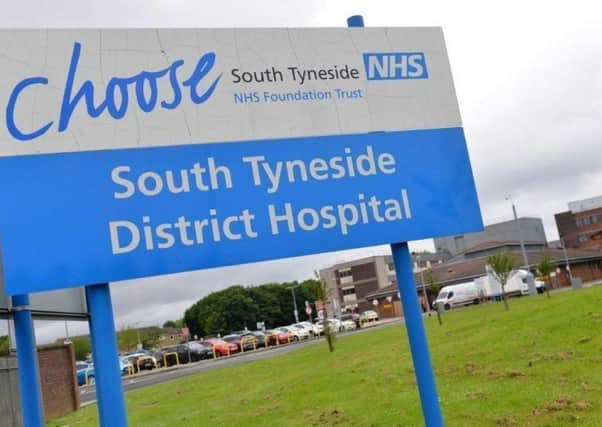Meeting to discuss future of hospital services in South Tyneside


The move is part of the ongoing Path to Excellence consultation which is looking at proposed changes in how care will be delivered in South Tyneside and Sunderland in future.
Areas under consultation include stroke care, maternity (obstetrics) and women’s healthcare (inpatient gynaecology) and children and young peoples (urgent and emergency paediatrics) services at South Tyneside Hospital.
Advertisement
Hide AdAdvertisement
Hide AdRepresentatives from both NHS South Tyneside Clinical Commissioning Group (CCG) and NHS Sunderland CCG will be at the meeting which will take place at Hebburn Central in Glen Street on Wednesday February 21, 2pm until 4pm.
The main agenda items will be the decisions based on the recent public consultation on three areas of acute hospital care as part of the ‘Path to Excellence’ consultation.
People are being invited to attend the meeting which will also be broadcast live on Youtube.
A link to the channel will be available by visiting www.pathtoexcellence.org.uk
Advertisement
Hide AdAdvertisement
Hide AdSince the proposed changes were announced there has been fierce opposition from campaigners.
A number of protests and rallies have taken place - led by the Save South Tyneside Hospital campaign.
Councillors have also joined in the campaign to let their views be known.
Proposals include running an inpatient hyperacute and acute stroke care from Sunderland, with hospital-based rehabilitation on a specialist stroke ward, while on South Tyneside, local community stroke teams would operate.
Advertisement
Hide AdAdvertisement
Hide AdOther proposed changes included running a 24/7 paediatric emergency department at Sunderland Royal with either a 12-hour paediatric emergency department at South Tyneside or a nurse-led minor injury or illness service, both from 8am-8pm.
The proposals also include having a special care baby unit and consultant-led maternity unit for high risk births at Sunderland with South Tyneside either having a free-standing midwife-led unit for low risk births or solely offering antenatal and post-natal care.
Around 2,500 people took part in a consultation over the future of South Tyneside District Hospital and Sunderland Royal Hospital - but many used the exercise to express major concerns.
The final decisions on the future of hospital services will be made available to the public, staff and stakeholders as soon as possible after the meeting and the day after.
For more information and the background, visit the Path to Excellence website pathtoexcellence.org.uk